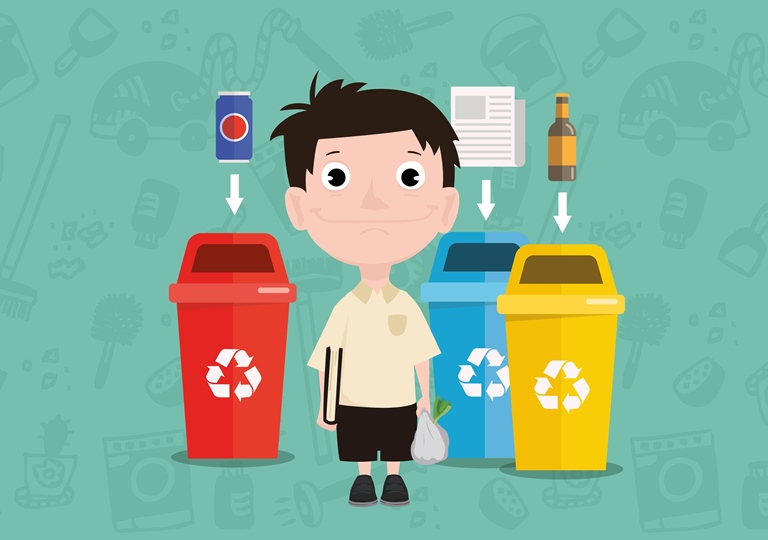Why kids should do chores
13 May 2016

Retired Principal, Mrs Jenny Yeo shares how parents can nurture young children to be more responsible and independent through doing chores.
Want an independent, caring and helpful child? Give him/her some responsibilities, say experts.
On my recent holiday in Japan, I was very impressed with cleanliness of the streets and I marveled at the civic mindedness of the inhabitants. One of the traditions of Japanese education is that students do soji (cleaning). Soji starts after lunch and lasts for about 20 minutes. This happens four times a week and on the last day of each semester, there is a longer sprucing-up called o-soji (big cleaning). Throughout cleaning time, the public announcement system blasts cheerful marching music. Every class is responsible for cleaning its own classroom and two other places in the school.
Japanese schools have non-teaching staff called yomushuji, or shuji for short. They have many responsibilities, including serving as crossing guards, but their main job is cleaning and maintenance. Through cleaning, values like responsibility, cooperation and discipline are inculcated. Although students only need to take care of the areas they are accountable for, they are more considerate of shuji and less likely to litter or mess up the public areas.
These days, many Singapore students attend after-school activities like enrichment programmes, tuition or sports classes; activities that parents hope it will help with academic achievements or furnish their child’s portfolio. Few are expected to help out with everyday responsibilities; some parents even react adversely when children are asked to help out with these responsibilities at school.
Here’s some food for thought; research by Dr Marty Rossmann, Professor Emeritus at the University of Minnesota and Richard Weissbourd (Ed.D), psychologist from the Harvard Graduate School of Education, shows that children who help out with home duties or chores actually do better in school and they are more empathetic and caring.
In fact, children who participate in everyday responsibilities perceive themselves more positively, have a stronger sense of self-worth and are less stressed. Interestingly, the effects are comparable to that of affectionate hugs and fun play with their friends.
These children also feel good that they are contributing; they feel wanted, needed and bonded to the family. They see that they have an important role to play in the family and the daily responsibilities help to make caring and helpfulness second nature to them.
In the past, helping out with housework was part and parcel of growing up in my family. My mother would assign a room to each of us. My elder sister was responsible for the living room, and my twin sister and I were in charge of a bedroom each. Our duties include wiping, dusting, sweeping and mopping, and making the beds. At mealtimes, we take turns to set the table and everyone had to wash their own dishes.
My mother made us understand why and how the chores were to be done. She also showed us ways to make the beds and tools to use for cleaning. She motivated and rewarded us occasionally but also laid ground rules and meted out consequences if we failed to do so.
In retrospect, not only did my siblings and I learn how to clean and organise; we also learnt time management. No chores done, no play time! We grew up learning to be responsible for a comfortable home environment and the family naturally were thoughtful towards each other. For example, we were mindful not to mess up the house because we knew we would not want the areas we are responsible for to be a mess!
It is common for many of us now to outsource household work or leave it to the domestic helpers. This begs the question, how do we get the children involved? A friend of mine made sure her children understood the role of the domestic helper was to support the family with certain everyday responsibilities, but everyone in the family had a part to play in keeping the home clean and duties assigned. For example, the children washed their own shoes and the whole family washed the car together.
If you want an independent, caring and helpful child, experts recommend to give your child everyday responsibilities.
Start them young, set clear and realistic standards according to the child’s stage in development and assign age-appropriate tasks. For example:
- Pre-schoolers can put their toys, books and shoes away. With adult supervision, they can also help to make their beds, clean and set the table for meals.
- Primary school children can sweep or mop and help in dusting and clearing the plates. They can also help with cooking, laundry and cleaning the bathroom with adult supervision.
- Adolescents need more autonomy so they could be asked to care for younger siblings, plan and cook meals, and run errands like buying groceries for the family.
Encourage, praise, show affection and love when your children put in effort. Be patient, do not nag and accept that it will take time to start a child on everyday responsibilities. Sometimes a child may take his or her time to complete each task but remember not to intervene. Remind and explain to them on time management. If we take over the task, the child will be deprived of the satisfaction they experience when they complete the task and it will cultivate irresponsible behaviours. The child might think that they are not capable of doing it, lose their self-confidence and stop trying. It is worse if they set their mind to leave the chores as it will be done by someone else eventually.
Steer clear of financial rewards if your goal is to instill the values of care and responsibility. A star on a chart for a young child and positive verbal affirmation are much better ways to reinforce and motivate.
To nurture responsible, independent, and caring adults of tomorrow, we as the adults of today have to let our children experience the important part they can play in helping and caring for the family and be socially responsible for their surroundings and environment.

.jpg)



0ad579a7a8a66eb2afccc900c73e6f2e.jpg)